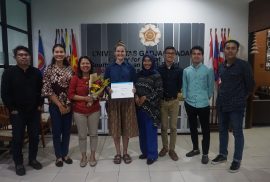Rodrigo Duterte came into office as Philippines’s 15th President on June 30, 2016. His approach to South China Sea dispute and his overall foreign policy once shocked many in the region, and more around the world. As his approach to South China Sea dispute differs from his predecessor, Benigno Aquino III (in office 2010-2016), the world is watching what will come out of this diversion.
Under Benigno Aquino III’s presidency, Philippines was very assertive in emphasizing its claim upon the competing claims by several other countries in the South China Sea. During Aquino’s administration, the Philippines brought the case against China to the Permanent Court of Arbitration (PCA) in 2013. The decision came on July 12, 2016, about two weeks after Duterte assumed office.










